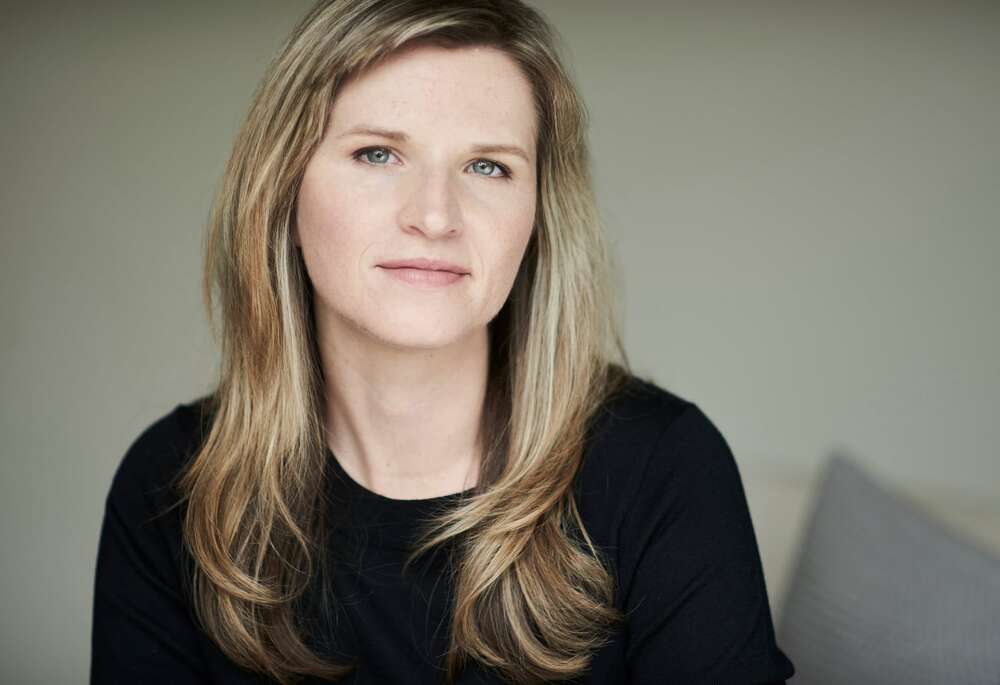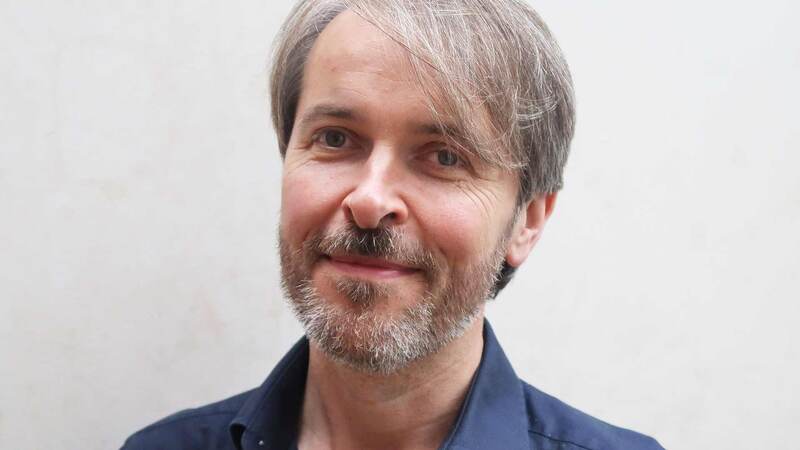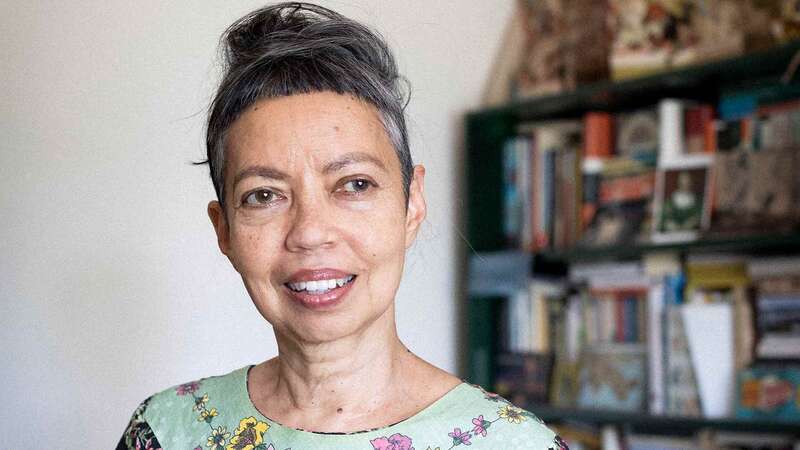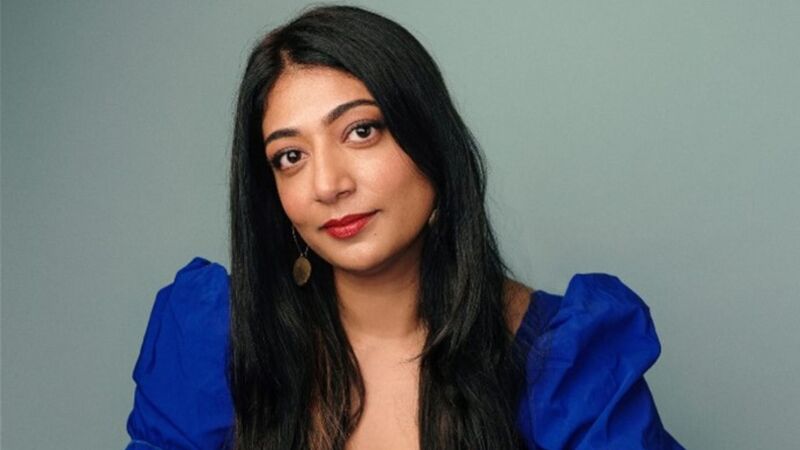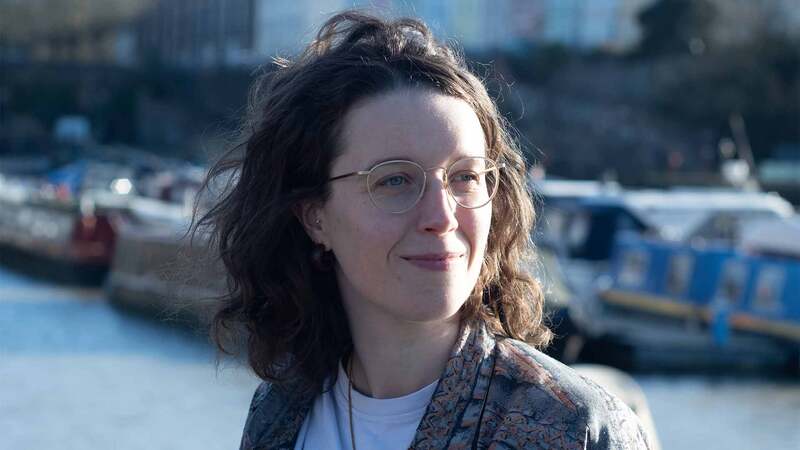You are viewing your 1 free article this month. Login to read more articles.
Tara Westover | 'My biggest fear wasn't that it wouldn't get published but that it would get published when it didn't deserve to be'
 Caroline Sanderson
Caroline SandersonCaroline Sanderson is a non-fiction writer, editor and books journalist. Her books include a travel narrative, A Rambling Fancy: in the F ...more

Caroline Sanderson is a non-fiction writer, editor and books journalist. Her books include a travel narrative, A Rambling Fancy: in the F ...more
In her exceptional memoir, Educated, Tara Westover writes of when, as a young woman in her early 20s on a study-abroad programme, she is taken onto the roof of King’s College Chapel in Cambridge on a tour with a group of fellow students. She is visiting from Brigham Young University (BYU) in Utah, and up there she is the only one to stand tall as the group picks its way along the parapets; everyone else is bending and cowering in the wind while the upright Westover’s hands are pushed nonchalantly into her pockets.
Noting her poise, her professor says: “The other students were relaxed until we came to this height... You seem to have made the opposite journey. This is the first time I’ve seen you at home in yourself. It’s as if you’ve been on this roof all your life.” Westover responds, flatly: “I’ve roofed my share of hay sheds.” Reflecting on this episode a decade later, she writes: “I wanted the mind of a scholar, but Dr Kerry could see I had the mind of a roofer. The other students belonged in a library: I belonged in a crane.”
This incident perfectly encapsulates Westover’s remarkable story, her climb to the roof of her capabilities from deeply challenging circumstances. But it also hints at the price she has had to pay for the kind of education most of us take for granted and, ultimately, for the confidence to live bravely in the new world she has opened up for herself.
Born in 1986 in rural Idaho, the youngest of seven children, Westover grew up with a radical, survivalist father who had both a literal take on the Bible and an intense paranoia about state interference in his family’s lives. There were no state or federal records of her existence until she got a birth certificate at the age of nine. Visits to the doctor and to hospitals were also forbidden: family illnesses and accidents (a shocking number of which occur in the book) were treated by her mother, an undoubtedly talented herbalist.
Nor was Westover permitted to set foot in a classroom until she was 17, receiving only a sparse and sporadic home education, and working long and dangerous hours in her father’s scrapyard from the age of 10 instead. And yet, at the age of 27, Westover earned a doctorate in history from Cambridge University. “I don’t recommend doing it that quickly,” Westover tells me with a laugh when we meet at the office of her UK publisher, Hutchinson. “It was nuts.” Nuts is putting it mildly. On one occasion in her first year at BYU, Westover comes across the unfamiliar word “Holocaust” in a history lecture. When she raises her hand to ask what it means, her outraged fellow students assume she is making a sick joke. Such exposures lead Westover to conceal the nature of her upbringing and her lack of formal education, at grave cost to her mental health. It will be years before she can even begin to believe that, rather than “a traitor, a wolf among sheep...a woman drawn to unwomanly things”, she is a student so gifted that an essay she writes during her UK study programme is pronounced “one of the best I have read in 30 years” by the professor who later lobbies for her to be awarded a Gates Cambridge scholarship for intellectually outstanding postgraduate students. “I’m sceptical of that!”, is Westover’s reaction, even now, when I quote his remark.
A family story
Educated is also a book about Westover’s family, in which there is love, certainly, and sometimes joy, but also mental illness, misogyny and domestic violence. “I started to write solely about my education, but the more I wrote, the more I felt like the story of my education and the story of my family were the same story,” Westover tells me, speaking with quiet assurance in her soft US accent.
Despite her father telling her that she has cast aside God’s blessings to “whore after man’s knowledge”, Westover’s parents came to a kind of acceptance of her need to be a scholar, not a roofer. What they couldn’t accept was her eventual decision to confront them with the truth of the physical abuse she had long suffered from the brother she pseudonymises as “Shawn”. In one of the horrific assaults described in the book, Shawn beats her up, telling their watching mother: “She’s not going anywhere until she admits she’s a whore.” When it emerged that her sister “Audrey” had also been similarly assaulted, Westover’s parents and three of her siblings, including Audrey, chose to close ranks against her rather than admit the truth. “All I had to do was swap my memories for theirs and I could have my family,” she writes of this time. But there was no turning back for the now educated Westover. She chose to leave, finally believing that her voice was “as strong as theirs”, and that her life was “not a thing unalterable”.
While contact with three of her siblings and various members of her extended family has been restored, Westover, who is now settled in the UK, hasn’t seen her parents for several years. “My brother Shawn is a complicated person. He has a lot of issues. But I do think he wanted to change, and if my parents had handled it differently it could have been a major turning point in his life. So many things could have been different. But it was a fork in the road for me.”
A big deal
Educated was bought by Hutchinson just before the 2016 London Book Fair in a six-figure pre-empt within 24 hours of the submission being sent out. But once the book had sold, Westover spent over a year reworking it. “It’s my life story. So I wanted to spend time making the writing better. My biggest fear wasn’t that it wouldn’t get published but that it would get published when it didn’t deserve to be. I’d never written a word of narrative: I had written only academic papers. And I was very disappointed to discover that was a skill that didn’t necessarily translate,” she laughs ruefully. It was reading short stories for the first time, and understanding the rigour it takes to write less rather than more, which provided her guiding discipline. “I think that when memoir goes wrong it goes wrong from too much memory, too much detail. It’s about clearing all that away and just getting to the story.”
I think that when memoir goes wrong it goes wrong from too much memory, too much detail. It’s about clearing all that away and just getting to the story
The result of her crafting is a book that is utterly unforgettable. For Educated, I predict acclaim, honours, worldwide sales. But what will publication mean personally for its author: a young woman still estranged from her family because she learned the importance of telling the truth about history? “The thing about books and confronting people with bad things that have happened is [that] you can’t go back. You can’t make it so the curtain never fell. I think my parents have the same choice now as when I told them what was happening with my brother. I expect they’ll respond to the book in the exact same way. But you never know”.
This slightly built but steely young woman is clearly still reflecting on all that has happened. But of one thing she is in little doubt. “We think about education as a stepping stone into a higher socio-economic class, into a better job. And it does do those things. But I don’t think that’s what it really is. I experienced it as getting access to different ideas and perspectives and using them to construct my own mind. An education is not so much about making a living, as making a person”.




